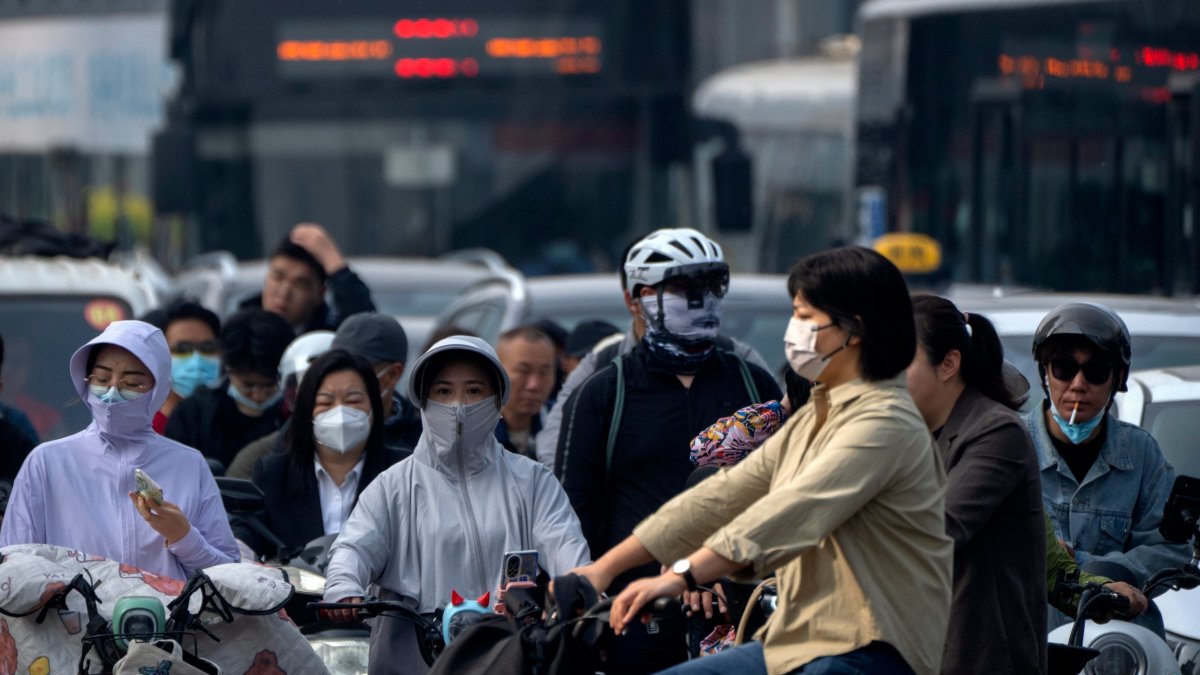Infection
Why the world is worried about a new pandemic in China
As a result of the global Covid trauma, when lots of people in China sneeze, the world shudders.
So, news that China is experiencing a surge in respiratory child illnesses, including pneumonia, has understandably given the world the jitters.
Reports from local media and the Program for Monitoring Emerging Diseases — a publicly available system run by the International Society for Infectious Diseases — have mentioned clusters of “undiagnosed pneumonia” in children’s hospitals in Beijing, Liaoning and other places in China.
The World Health Organisation promptly asked Chinese authorities for lab test results and data on recent trends in the spread of respiratory illnesses.
WHO officials conclude that common winter infections — rather than any new pathogens — are behind the spike in hospitalisations.
And most experts are not unduly concerned about this rise in child illness, blaming it on greater susceptibility to familiar pathogens after several winter lockdowns. But there are wider fears over how China may respond to another rapidly spreading virus.
Paul Hunter, a professor of medicine at University of East Anglia who specialises in investigating the causes of outbreaks of infectious diseases, told i he thinks the current surge in illness is unlikely to be due to a novel virus.
“Early reports of “pulmonary nodules” on chest X-rays of young patients in China are “consistent with bacterial pneumonias that tend to follow flu infections,” he says.
“As this is the first full winter that China has not had Covid restrictions in place, we are probably seeing high numbers of such infections as we did last winter… some sources are suggesting that current cases are not as high as some years pre-Covid.”
Another researcher, Benjamin Cowling, an epidemiologist at the University of Hong Kong, has a similar take. He told Nature magazine: “This is a typical ‘winter surge’ in acute respiratory infections. It is happening slightly earlier this year, perhaps because of increased population susceptibility to respiratory infections resulting from three years of Covid measures.”
The question remains, however, would China react with any greater alacrity and transparency than it did in January 2020, when Covid began spreading through the population of Wuhan?
And it’s a question with real urgency, given the prospect that another pandemic could occur at any time from any one of hundreds of wet markets, which appear as busy and popular as ever.
Most China watchers doubt it.
“The problem is, that Xi Jinping does not accept that China’s action or non-action was responsible for the Covid pandemic, so it’s hard to learn lessons when China could not have made any mistake,” says Professor Steve Tsang, the director of the Soas Chinese Institute in London.
Many professionals in China, of course, want to perform their duties – just as the whistle-blowing medic Li Wenliang did at the start of the pandemic. He sounded the alarm about the emergence of deadly Sars-like illness in Wuhan, at the start of 2020. He died of Covid on 7 February after being told by officials to “stop making false comments” and was investigated for “spreading rumours”.
The trouble is, says Professor Tsang, most medics and scientists feel obliged to follow the orders of the Chinese Communist Party, and “since China is under the rule of a strongman, it is about how one man, Xi Jinping, decides how things are to be done… No one dares to do anything that can be seen as suggesting China had done something wrong in the start of the Covid pandemic.
“We better keep our fingers crossed that nothing like Covid emerges from China again any time soon.”
Neither are scientists very optimistic that China has learnt its lesson.
“Communication is key and, given the Covid experience, I would have hoped to see a more proactive, transparent and engaged response from China to new disease clusters, but that is unfortunately not what we’ve seen so far,” says Dr Fillipa Lentzos, a biothreats expert and a reader in science and international security at King’s College London.
She was one of the two dozen scientists from the US, UK, France and Australia who called in an open letter in March 2021 for a fresh international inquiry into the origins of Covid pandemic. The open letter came after a team of WHO investigators announced it would scrap an interim report on the origins of the virus after its fact-seeking mission in Wuhan was consistently impeded by Chinese officials.
Dr Lentzos and her co-authors said the WHO investigators had so little access to the resources they needed that it was “all but impossible” to confidently conclude that the virus did not escape from a Chinese laboratory.
Most scientists working in the field believe Covid did occur naturally, as an animal virus crossing over to humans.
But given the clinical importance of understanding how the viral infection arose in human populations, it was incumbent on Chinese authorities to be as open as possible.
If another novel and deadly virus does arise in China, would the authorities alert the world more quickly than it did last time? Depressingly, the answer is: probably not.

